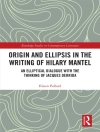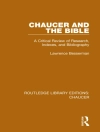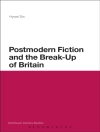Edward W. Said is considered one of the most influential literary and postcolonial theorists in the world. Affirming Said’s multifaceted and enormous critical impact, this collection features essays that highlight the significance of Said’s work for contemporary spatial criticism, comparative literary studies, and the humanities in general.
Tabela de Conteúdo
Introduction: The World, the Text, and the Geocritic; Robert T. Tally Jr. 1. Said, Space, and Biopolitics: Giorgio Agamben’s and D. H. Lawrence’s States of Exception; Russell West-Pavlov 2. Orient Within, Orient Without: Said’s ‘Hostipitality’ towards Arnoldian Culture; Emel Tastekin, 3. Edward W. Said, the Sphere of Humanism, and the Neoliberal University; Jeffrey Hole 4. Back to Beginnings: Reading Between Aesthetics and Politics; Daniel Rosenberg Nutters 5. Revisiting Said’s ‘Secular Criticism’: Anarchism, Enabling Ethics, and Oppositional Ethics; Darwin H. Tsen and Charlie Wesley 6. Transnational Identity in Crisis: Re-reading Edward W. Said’s Out of Place; Sobia Khan 7. De-Orienting Aesthetic Education; Cameron Bushnell 8. Dangerous Insight: (Not) Seeing Australian Aborigines in the Narrative of James Murrells; Kristine Kelly 9. Exilic Consciousness and Alternative Modernist Geographies in the Work of Olive Schreiner and Katherine Mansfield; Elizabeth Syrkin 10. Mundus Totus Exilium Est: Reflections on the Critic in Exile; Robert T. Tally Jr.
Sobre o autor
Cameron Bushnell, Clemson University, USA Jeffrey Hole, University of the Pacific, USA Kristine Kelly, Case Western Reserve University, USA Sobia Khan, Richland College, USA Daniel Rosenberg Nutters, Temple University, USA Elizabeth Syrkin, University of Muenster, Germany Emel Tastekin, Yasar University, Turkey Darwin Tsen, Pennsylvania State University, USA Charlie Wesley, Daemen College, USA Russell West-Pavlov, University of Tübingen, Germany












